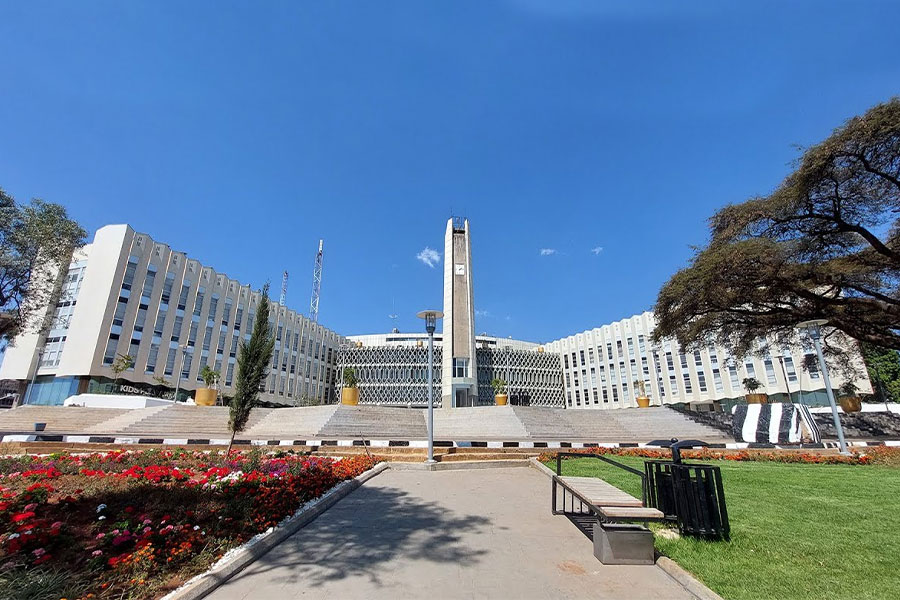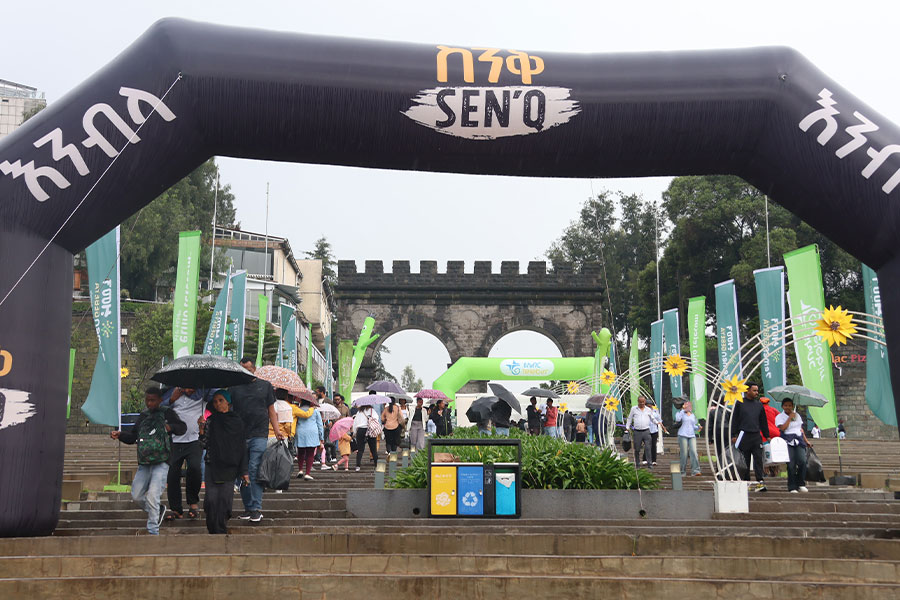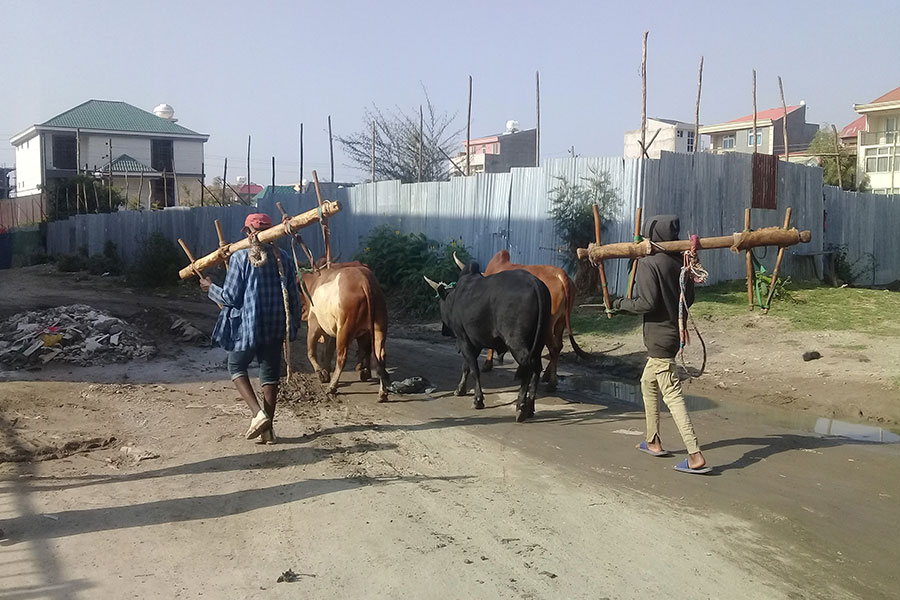
Radar | May 25,2024
Jul 30 , 2022
By BERSABEH GEBRE ( FORTUNE STAFF WRITER )
The Addis Abeba City Administration cabinet has reduced interest on the annual lease payment rates for plots leased for residential and investment purposes.
The 45-member cabinet chaired by Mayor Adanech Abiebie decided to apply interest on the annual instalments instead of the lease payment arrangement, which imposed interest on the remaining balance. The decision comes after city experts conducted a study to assess the effect and viability of the new lease payment arrangement, according to Biniam Mikiru, head of cabinet affairs.
The Administration collected 4.3 billion Br from lease payments, including interest, in the concluded fiscal year. The revenue was a 7.5pc jump compared with last year.
Regional states and city municipalities interpret a law passed in 2011 governing urban land lease holding differently. Advance payments should be 10pc of the value of the lease, with the balance paid in annual instalments. Interests must be paid on the remaining balance. The phrase “remaining payment” has created confusion among regional states and city administrators.
The Addis Abeba City Administration officials have been interpreting the phrase as the residual balance after the down payment. Regional administrations such as Oromia, Tigray, and Southern states interpret the phrase as annual payments and apply interest on the yearly instalments.
Abubeker Mohammed, lecturer of land administration at Ambo University, says the previous interpretation of the law has discouraged investments and put pressure on the low-income segment of the population.
“Investors were required to pay 10pc of the lease amount upfront in addition to resuming construction within 18 months,” he said. “This has discouraged many developers from investing in the city.”
A month ago, the city’s cabinet instructed the Addis Abeba Land Development & Management Bureau to adjust.
Desta Mergia, director of land transfer and administration, confirmed his office received the cabinet’s decision. However, the Bureau awaits detailed instructions on how to apply the new payment arrangement.
“We’ll proceed as soon as we receive documents that explain the decision in detail,” said Desta.
Last year, the cabinet took similar measures to a little more than 33,000 housing properties built on unlawfully occupied land. City administrations have the authority to adjust the payment modalities to ensure low-income families have access to leased land at affordable prices. In 2010, the city administration granted entitlement to 60,000 households occupying undocumented plots acquired before 1996. Four years later, the Administration started processing the title deeds of undocumented homesteads. By 2017, half of them had completed the registration after paying a down payment of 10pc of the lease value.
“The administration implemented the new lease payment arrangement on the undocumented properties,” Biniam told Fortune. “It was an issue that required an urgent response.”
Many homesteads that occupied land illegally pay the annual instalments based on the new payment modality, according to Abubeker Mussa, land management and transfer officer in the Akaki-Qality District.
However, property owners argue that the new payment system should be applied to the original lease price instead of the outstanding balance.
“We’ve asked the Bureau for further clarification on the matter,” said Abubaker.
PUBLISHED ON
Jul 30,2022 [ VOL
23 , NO
1161]

Radar | May 25,2024

Commentaries | Mar 13,2021

Radar | Jun 21,2025

Fortune News | Jul 06,2025

Featured | Sep 07,2025

Fortune News | Feb 15,2020

Fortune News | Aug 30,2025

Fortune News | Sep 03,2022

Radar | Nov 05,2022

Radar | Dec 25,2018

Dec 22 , 2024 . By TIZITA SHEWAFERAW
Charged with transforming colossal state-owned enterprises into modern and competitiv...

Aug 18 , 2024 . By AKSAH ITALO
Although predictable Yonas Zerihun's job in the ride-hailing service is not immune to...

Jul 28 , 2024 . By TIZITA SHEWAFERAW
Unhabitual, perhaps too many, Samuel Gebreyohannes, 38, used to occasionally enjoy a couple of beers at breakfast. However, he recently swit...

Jul 13 , 2024 . By AKSAH ITALO
Investors who rely on tractors, trucks, and field vehicles for commuting, transporting commodities, and f...

Oct 11 , 2025
Ladislas Farago, a roving Associated Press (AP) correspondent, arrived in Ethiopia in...

Oct 4 , 2025
Eyob Tekalegn (PhD) had been in the Governor's chair for only weeks when, on Septembe...

Sep 27 , 2025
Four years into an experiment with “shock therapy” in education, the national moo...

Sep 20 , 2025
Getachew Reda's return to the national stage was always going to stir attention. Once...